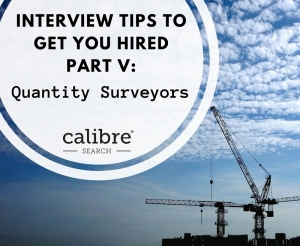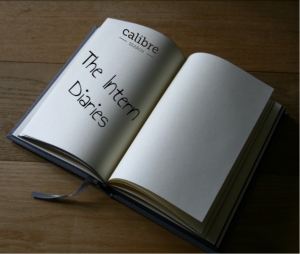Displaying items by tag: recruitment

It’s so tempting, isn’t it? When all you hear on the news is that there are plenty of candidates looking for work and it seems like recruiters charge an avoidable fee, you start thinking ‘maybe we should handle the hiring in-house’. We all know 2020 hasn’t exactly been good news for the employment rate, so surely it can’t be that difficult to hire HVAC specialists to join your team.
Fast forward a couple of weeks, and you find yourself knee-deep in poorly formatted CVs, trying to arrange interviews with candidates who don’t call you back, or worse, you’re waiting for candidates who don’t show up to the interview you arranged. What a waste of time and energy for everyone involved. Plus, your sales and day to day duties will suffer while your attention is diverted.
That’s exactly where recruiters like Calibre come in; we do the legwork for you. All of the time-consuming processes to move your recruitment along, all the people headaches, all those emails and calls – we take them on for you.
Still not quite convinced? Here are our top 7 reasons to use a specialist recruiter rather than try to hire yourself.
Find the passive candidates
Let’s start with the biggie. Direct hiring usually limits you to people who are actively looking. Putting an advert out on a job board or social media means you’ll only find people who make a conscious effort to look for a job. If it was a simple as that to hire someone, recruiters like us wouldn’t exist. Nearly always, the more talented HVAC or refrigeration specialists you need are already in work, we know these people, and we know how to target them.
Specialist networks
Leading on from the above, recruiters like us at Calibre have built up a vast network of engineers. Our equivalent of a ‘little black book’ is full of qualified and trade checked people who we make a point of staying in touch with. We keep our contacts warm; we know when they’re thinking about their next move. We target our specialist networks through social media posts, direct emails, calls and posting on multiple job boards to gain the widest reach possible to find you the best talent.
We review all candidates
The good, the bad and the ugly - we review each one. We know how to spot the cowboys (or girls) and well, not quite run them out of town but they are screened out with a ‘thanks, but no thanks.’ It’s our job to review all applicants to the job in question. It’s time-consuming, but wouldn’t you rather be doing your day job? Leave the early screening to us. Our experience means we can quickly identify those with the right skills, experience and attitude to meet your criteria. It’s also down to us to check out the candidate’s motivations for finding a new job. We want to make sure that they intend to not just join your team but stick around and contribute to the business long-term.
Let us handle the pre-screen phone interviews
Again, this time-intensive process is where recruiters come in. Our consultants can arrange and conduct first stage pre-screen interviews to help whittle that shortlist down. Our expertise means we can spot the time wasters and those who would take counter-offers and stick with their original employment (the latter is beyond frustrating for those involved, so let’s avoid that. That's something else we manage but that's another blog).
Emails, interviews and ghosting
Ghosting is a fairly new term – often used in the dating world when one of the parties stops replying to all messages. texts, WhatsApps, emails; they go unanswered as if the person has turned into a ghost. Again, it’s unbelievably annoying if the other person is 100% your type on paper. We deal with the heartache of ghosting. We also take on the laborious task of calling, emailing and arranging interviews then rearranging them when necessary, ultimately freeing up your time to focus on the day job.
The Feedback loop
Those awkward conversations that no-one likes having, well that’s our job too. We know we have to have those chats. We have to deliver the ‘it’s not you, it’s us’ or perhaps ‘it’s you, you’re just not the right person for us’. And that feedback goes both ways; the candidates might pull themselves out of the race if you don’t seem like a good fit for them. It’s down to us to make sure no bridges are burned, and feedback is handled diplomatically. People talk and if you don't get back to interviewees with feedback, either positively or negatively, word can get out and this makes future recruitment more difficult. We’re in the Facebook groups, we’re talking to the suppliers, and we’re ensuring that your feedback is fair and your reputation is protected.
The best bit
Making the job offer and having it accepted is far and away the best part of the process. It’s what keeps recruiters coming back to our desks every day but it's not always a straight forward exercise. We’ll guide both sides through to make sure it’s as stress-free as possible. This can be everything from talking the candidate through how to hand in their notice and dealing with counter-offers to making sure they know where to be and who to meet on their first day with you.
All of this is a moving feast. People are people… they change their minds, have different demands, focus on different priorities and can suddenly change direction. It takes time and effort. Our job as a recruiter is to shield you from any and all of the problems. It’s what we’re good at, and that’s why our HVAC and refrigeration clients come back to us time and again.
Get in touch with our specialist team today for a no-obligation conversation.
This week we have spoken to our team of Quantity Surveyor recruitment specialists to pick their brains to provide you with the best interview tips for your next interview.
Associate Director - Civil Engineering, Building, and Housing Contractors
0113 234 6047
mark.brennan@calibresearch.co.uk
Impress with Your Network
You know the importance and benefit of a strong network in this industry so don’t forget about it in the interview! When talking about your projects and experience mention the contractors you have worked with and the positive relationships you have built in previous roles. You will be able to impress the interviewer with your vast network and bring additional benefits to the company.
Know Your Day to Day Activities and Extended Responsibilities
In a lot of the feedback, we receive from clients they say many candidates are unable to accurately outline their day to day responsibilities in their current role. It might seem simple, but it is easy to forget the smaller tasks you are responsible for which makes a big difference to the success of a project. Before the interview, note down a typical day in your current position, from start to finish, meaning it will stay fresh in your mind and will also allow you to point out any responsibilities you have that are beyond the typical scope of a quantity surveyor. Interviewers love candidates who take on additional responsibilities.
Flip the Interview
Another comment used to describe a typical quantity surveyor interview is ‘Binary’. Interviewers will tend to follow a similar line of questioning: What Projects have you worked on? What were your responsibilities? Try to stand out by flipping the conversation to being company entred. Talk about the project you would be working on in the new business then point to the skills, responsibilities, and experience you have that would benefit that project. You will show you have done your research and are company focused.
Be Prepared For a New Style of Industry
The industry has changed a lot in recent years. Companies are less likely to offer large bonus schemes or company cars now and put a bigger focus on company values and visions., this can come as a surprise to experienced surveyors so try to prepare as best you can. Know the values of your previous employer and have examples of how you portrayed those values in your day to day work. Sometimes bonus schemes or company visions, goals and values are not very clear when researching a company and can be very important when choosing which companies to apply for; Using a good recruiter can help filter through companies to find the best one to fit your goals and expectations. On top of that, they can further your knowledge of the business that will make you extra prepared if offered an interview.
Talk About Progression
An interest in progression is a good sign in any interview but particularly for a quantity surveyor. Your professionalism and expertise will be used to win over projects and pitch to potential clients so if you are keen to develop in the industry make sure you talk about it. If you are studying or hoping to study in the future make sure you know the details that will interest the interviewer. What it will cost them; When you expect to complete it or how long it will take; and what benefits that will give to the company. If you have career goals, ask the right questions to show your intent, ask about career progression, routes to particular roles and the future projects of the company. Once again, showing your interest and commitment to the company.
Follow Up Email
It is simple, but many people forget to do it. Sending a follow-up email thanking them for their time and consideration shows your professionalism and communication skills. Giving an insight into how you operate as a surveyor.
Have a Well Organised Portfolio
A portfolio is not essential for an interview for a Quantity Surveyor, but it is a great tool: Firstly, having physical examples of the projects you have worked on will provide clarity and context for the interviewer; Secondly, it helps to create a more conversational structure within the interview; and finally it is a great aid to remind you of details and statistics from previous projects.
Speak to one of our Quantity Surveyor recruitment specialists to find out how they can help you find the right job for your career progression by looking at our quantity surveyor jobs here, dropping us an email or give us a call on 0333 323 0733.
Meet Our Team
Associate Director - Civil Engineering, Building, and Housing Contractors
0113 234 6047
mark.brennan@calibresearch.co.uk

Recruitment Consultant - Surveying/Project Management
0161 660 2360
Intern Diaries Part II: What is a Recruiter?
Our intern has been busy getting to grips with life in a recruitment office. After three weeks in the job, she gives us a rundown on what skills she thinks a recruiter should have.

After four weeks working at Calibre Search I think I’m safe to make a confession. It might sound a little ridiculous, it will probably cause a few eye rolls from my colleagues (as it did my parents) and it will make you question why on earth I’m working here but it’s time to be honest.
When I first applied for the job here, I didn’t really know what a recruitment company did.
I mean you don’t have to be Sherlock Holmes to know the very basic role of a recruiter, you recruit employees for companies. But how they did it, what a usual work day would look like or what skills made a recruiter, I had no idea. When I first told my parents about the company I was working for they looked at me puzzled…
“But Charlotte you don’t know the first thing about recruitment, how on earth did you get that job?”
After trying, and failing, to persuade my parents I am the fountain of all knowledge, including recruitment, and the company clearly saw my potential and talent, I had to admit that my role was to work on social media and I wouldn’t be doing any recruiting. HOWEVER, after four weeks in a recruitment office, sitting next to recruiters, posting blogs, tweets and insta-pics for recruiters I think I am starting to get to grips with what a recruitment company does, what a recruiter looks like and some insider tips to be a good recruiter. From my vast amount of well researched analysis (four weeks of listening in to conversations I shouldn’t be) I can now publish my final report:
---------------------------------------------------------------------------
The Recruiter: A (Kind of) in Depth Report
There are several skills you need to have to be a good recruiter, many of which are not made clear on the job description these are as follows
Strong vocal chords
Recruiters spend over half their day on the phone so a good morning vocal routine is advised. Your phone voice will also need to be strong: different from the traditional office phone voice, the recruiter is friendlier, less formal and should include personalised phrases and stories that WILL be used on plenty of phone calls you make. Calibre examples include holiday advice, questions about the weather, good pubs for the weekend and the story of that time you got knocked off your bike on the way to work and needed stitches. I also recommended practicing the art of a good brew to keep vocal chords strong throughout the working day. There is office etiquette with any brew making and I would advise learning this at the earliest convenience.
There is no ‘i’ in team, but there is in ‘winning a competition’
Working as a team is essential to a happy and healthy office in recruitment. Communication and supporting other members of the team to help current clients and gain new ones is expected. However, introduce a light-hearted competition with a small prize, for example, a pack of biscuits, and there is a stark change. Survival of the fittest mentality kicks in and many recruiters will do anything they can to win. This includes trying to put off other teams, cheating or being a bad winner. I recommend practising your table tennis skills if you are looking to join Calibre Search and not making any bold statements about your running ability until you’ve done your research on the rest of the team. Otherwise you may find yourself signing up for a run and a time prediction you certainly won’t be able to manage.
Know your stuff
There is a general assumption that recruitment is simply a sales environment, despite their being some parallels, don’t underestimate how much knowledge recruiters have stored away. Recruiters aren’t selling people to companies or companies to people they do far more advising and informing. They are an industry encyclopaedia, they know what companies want, need and should have, they know the good, from the bad, from the ugly and they know their candidates! I would recommend researching the ins and outs of an industry you want to recruit for, you want to know everything that can help get the right fit for the job. to get the right placement you can’t just look at a company’s location and salary, you need to know the people employers, the career progression, where the company is going and what the office culture is like, to name a few. What recruiters don’t know about a company they are employing for isn’t worth knowing. So, I can’t emphasise enough, KNOW YOUR STUFF! I have worked in sales before, I have pretended to know my stuff about a product, I pretended to know my stuff pretty well, if I even tried to treat recruitment like I did in sales I would lose clients and candidates quicker than I would lose a 100 metre sprint against Bolt! (Despite the running abilities I may have incorrectly boasted about across the office)
---------------------------------------------------------------------------
So I may not have been here long enough for anyone to take my analysis seriously but I am pretty sure I have pointed out the key skills and characteristics of a recruiter, or a Calibre Search recruiter at least… who knows this bunch could be in a world of their own!
If you think you think the Calibre team would be a good fit for you. Our Manchester team is recruiting now! To find out more about working with Calibre Search go to our work for us page. Otherwise email your CVs and covering letter to Pete Gillick.
James Mitchell, Associate Director for Calibre Search, specialises in recruiting Java Developers within the IT market and we enlisted him to put some tips together to help people like you with your CV. Read on to find out how to create a CV that will help you stand out from the crowd and really impress employers.

James Mitchell 0113 234 6047 - Associate Director at Calibre Search IT
1. Match yourself to the job specification
Your personal profile is a chance to show how your previous experience makes you the right person for the job (if you’re not sure on this have a look at the ‘Job Description’ – our developer job adverts can be found here) by matching yourself to the job specification. It's worth investing time on this summary, because it could be your only chance to grab the employer's attention. If your specific objective is relocation, for example, but you don't mention this explicitly in your CV, you could be dismissed when they see your address is out of commuting range.
2. Give context
When writing your CV, give the skills some context – a list of Frameworks/Application Servers will lead to recruiters calling you, but the interview requests come from your skills being given some perspective. On a similar note, do the same thing with your projects – give them some background: your role, tech stack used and the outcome. It should read as what you have personally achieved while at that company.
3. Get the structure sorted
Keep your CV succinct and relevant – the work you did 35 years ago has little bearing on what you are doing today. Three to four pages will suffice, and always mention your responsibilities; ‘I’, not ‘we’. Your education history should always be at the bottom of your CV, unless you have recently graduated or have some qualifications that are particularly relevant to the role you are applying to. Oh, and never write in third person unless you want to be universally judged.
4. Your skills can pay the bills
Remember to mention soft skills. If your role requires a level of stakeholder management or bringing teams together then be sure to mention it, it could be important in your next role. Your hobbies and interests can be significant too – we all have friends (well, most of us) and telling the reader you enjoy socialising with them isn’t really considered a hobby. Take this opportunity to genuinely say what your interests are outside of work.
5. Clean it up
It sounds obvious, but you would be surprised how often we see it – your National Insurance number should remain private, you should not have this on your CV. Also, references are only needed at offer stage – if you’re approached by a recruiter who needs them as ‘part of their process’ you should be aware that it isn’t necessary to provide them at this stage.
Still stuck?
Don't worry, the art of CV writing is a tricky one. Our specialist IT consultants are experts when it comes to writing a great CV, and we're just on the other end of the phone – you can phone us on 01132346047 – alternatively my email address is james.mitchell@calibresearch.co.uk and our developer jobs page can be found here.
We're in the Press!
Our Manchester team moving office is obviously big news for us and we're delighted that the local press think so too. The article was the lead story in the Manchester Evening News business section and also featured in Bdaily and The Business Desk.
Recruitment firm Calibre Search targets £3m turnover from new Northern Quarter base
The Manchester office of Calibre Search is on target to reach £3m turnover and double headcount after moving into a new office in the Northern Quarter.
The firm, which specialises in built environment (consultancy and construction), HVAC, IT and marketing across the north west, Birmingham, Cumbria and North Wales, has moved to The Landmark building, a former textiles warehouse, joining other creative, media, property and design companies.
The space at the new office will allow Calibre Search to expand from eight to 18 staff, while also reaching revenues of £3m next year.

Director Pete Gillick, 37, said: “It’s a fantastic time to be part of Calibre Search. Group wide turnover for the Manchester and Leeds offices is expected to hit £6.5m next year.
“After outgrowing Piccadilly House, we have now moved to The Landmark, which is a historic and significant building in a brilliant area.
“I started the Manchester office up four years ago in a room with no windows in it. So, to be moving into a big modern and freshly refurbished space with a great balcony and a ping pong table is a huge step forward and the kind of quirky, relaxed but focused environment we want to create for our staff and the customers that visit.”
Pete, a graphic design graduate with a passion for photography, boasts more than a decade’s experience at firms including Randstad and Eden Brown.
Calibre Search is currently recruiting for staff at all levels with plans to increase headcount by a further 50 per cent next year.

Pete added: “Manchester is very much the second city and continues to develop rapidly.
“Despite Brexit, the city is only going in one direction and we are perfectly placed to be a part of the growth.
“Calibre’s Manchester office is ready to reach the next level as we are trusted by our clients. In all the markets we cover, we have experienced heads who have been servicing their industries for many years.
“Primarily, you have to do a great job, but also be genuine. If the best solution isn’t there at that particular time, we’d rather be honest, lose out in the short term but sustain that long-term relationship.
“It also really helps to be local. We know the regions we work in, what is developing and focus on establishing and looking after long-standing relationships.”

0113 234 6047
john.cassidy@calibresearch.co.uk
The art of CV writing is a tricky one, and many online CV guides are not relevant to industries like the HVAC & refrigeration industry. So our industry experts put their heads together to create an insider tips for you CV to make the best first impression
Tailor your CV to suit the job description
A lot of us are guilty of having a ‘one-size-fits-all’ approach to our CVs. While following these CV tips can give you a great head start when applying to refrigeration jobs, remember you do need to slightly alter your CV according to the job description. For example, if the job description says they want someone with a driving licence, or someone with ‘extensive experience maintaining a range of commercial refrigerators,’ then add these details to your CV if they are relevant to you. If the job description says that for the refrigeration technician they want, an engineering degree is desirable but not essential, and you went straight to the refrigeration industry without higher education, you could perhaps talk about the benefits of this. Think of the experience that you have, that a graduate might not. Have a look at our refrigeration job listings for some inspiration. These tips are the ultimate basis for creating a great CV – but try to remember to give your CV a little update for each and every job description. Employers want to know that you want to work for them. If they sense that you have tailored your CV to their job description, it will make you stand out as the ideal engineer they are looking for.
Be descriptive
Try and be as descriptive and technical as you can when writing about your duties at previous companies. Employers like to see that you are qualified for the job. Remember – your CV is your first and possibly only chance to make a good impression. You could be the best engineer in your world but how will anybody be able to tell if the only detail you give about your experience is ‘servicing splits and VRVs.’ Some good details to include on your CV are:
- Basic duties such as: fault finding and repairs; replacing compressors; changing PCB inverters; recharging systems with refrigerant; changing fan motors; replacing evaporators; changing pressure sensors and so on.
- The equipment you worked on - was it pack systems, cold rooms, ice machines, bottle coolers, display chillers, integrals etc?
- The sites you have worked in.
- The type of work: servicing, maintenance, installation, fault-finding, or commissioning.
- Any refrigeration engineer training or refrigeration engineer course you undertook:Any experience with different refrigerants like C02 or ammonia. Have you worked with refrigerants such as R410A, R407C, R407A, R404 or R134A?
Focus on what matters
While having a fancy CV with lots colourful borders and impressive fonts might look pretty, (and might give some of us a good excuse for procrastinating) it will distract employers from what makes you a good refrigeration technician. The most important thing you want your CV to say about you is how well you can fix an AC or refrigeration unit, or how much industry experience you have – not your Microsoft Office skills.
Leave out irrelevant information
While the employer is interested in finding out a little bit about your interests, quirks and hobbies – their main goal is to find out if you have the relevant skills you need for the job. Remember this when you write your CV. Justifiably, you might be really proud of your City & Guilds qualification in food hygiene but ultimately, it won’t help the employer do their job. The same goes for work experience. Leave out anything that is totally irrelevant to the refrigeration industry and focus instead on qualifications such as FGas.
Be careful not to oversimplify
Bearing the last point in mind, it’s still important to go into lots of detail about the relevant information on your profile. Make sure to list all relevant employment history. The amount of times we have seen engineers with twenty or more years experience only list their last five years is overwhelming. They say ‘I didn’t think it would be worth writing it all down,’ or ‘there is too much to list.’ This is one of the biggest CV mistakes you can make in the HVAC and refrigeration industry. By deciding not to list all your relevant industry experience, you will seem far less experienced than you are and directly decrease your chance of receiving an interview offer.
Don't be afraid to ask for CV help
Writing a CV can be daunting. Quite a lot of engineers we speak to haven’t updated their CV in years. A lot of jobs in the HVAC and refrigeration industry are acquired from knowing the right people – not submitting a CV to someone you’ve never met. We understand that writing a list of your skills and attributes for a stranger to assess you without ever meeting you is a terrifying concept. You want to make the best possible impression. Fear not! We are experts when it comes to how to write a good CV. Our recruitment consultants check every CV before sending it to employers and give you free and personal advice on how to improve it. Even if you just want to drop us a quick email we are happy to answer any questions.
Last but not least, remember the basics
Remember to include your name, contact details, experience and qualifications. It might seem obvious but we have even seen some engineers’ CVs without contact details.
If you follow all of these tips and don’t get the results you wanted, don’t be disheartened. You might not have received an offer for an interview, but the time you spent creating a great CV will pay off in the future. Why not check out our list of refrigeration jobs and vacancies and upload your new and improved CV. Good luck!
If you’d like any help with your job search or want to speak to our consultants here at Calibre Search, please don’t hesitate to call us on 0113 234 6047.

















